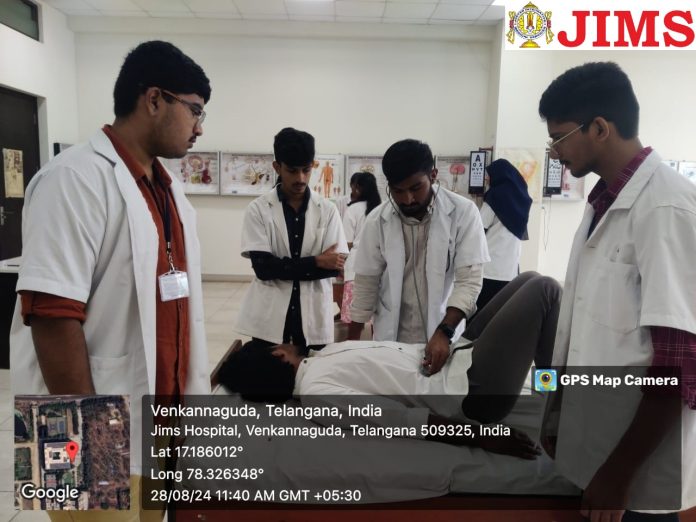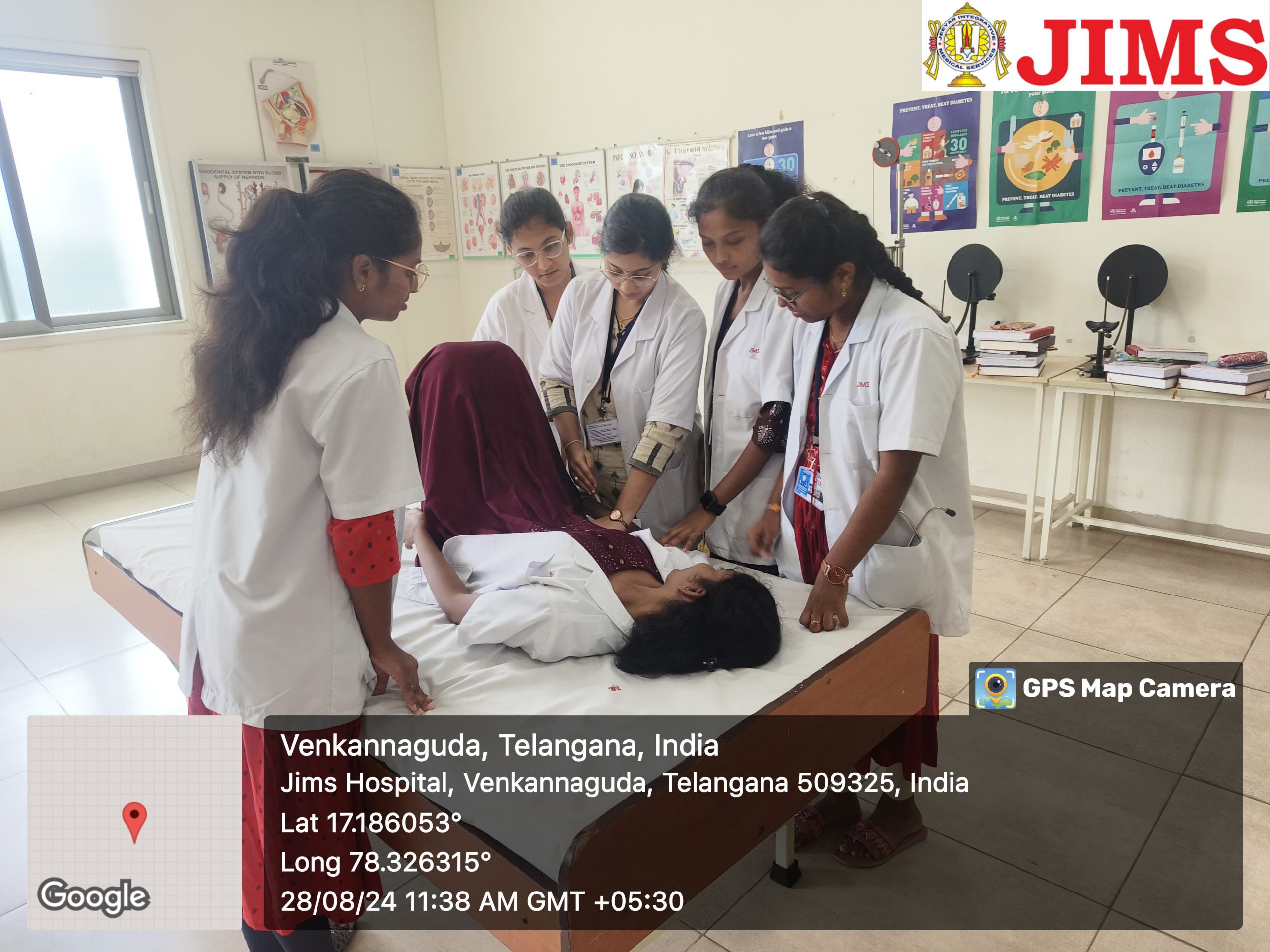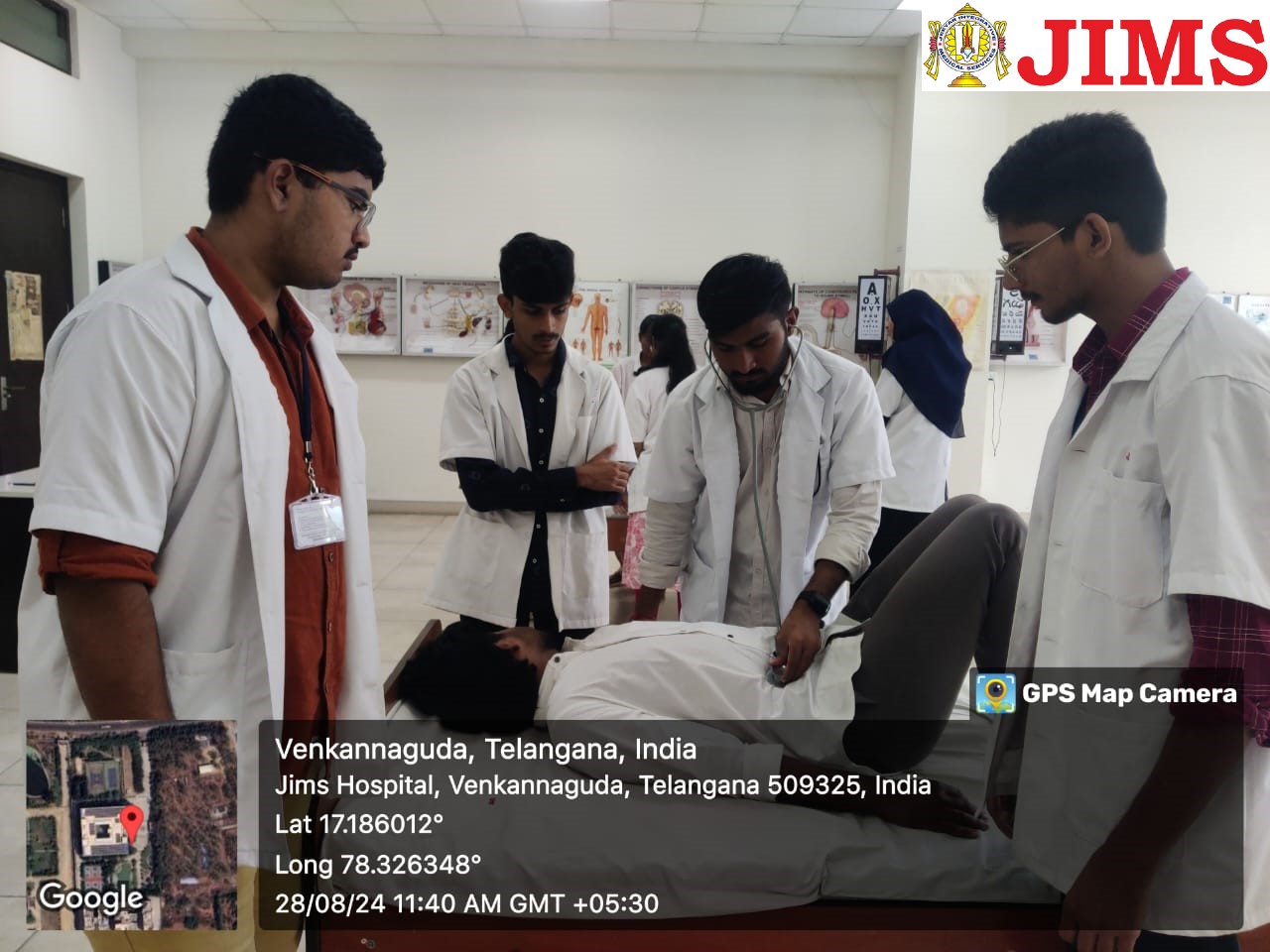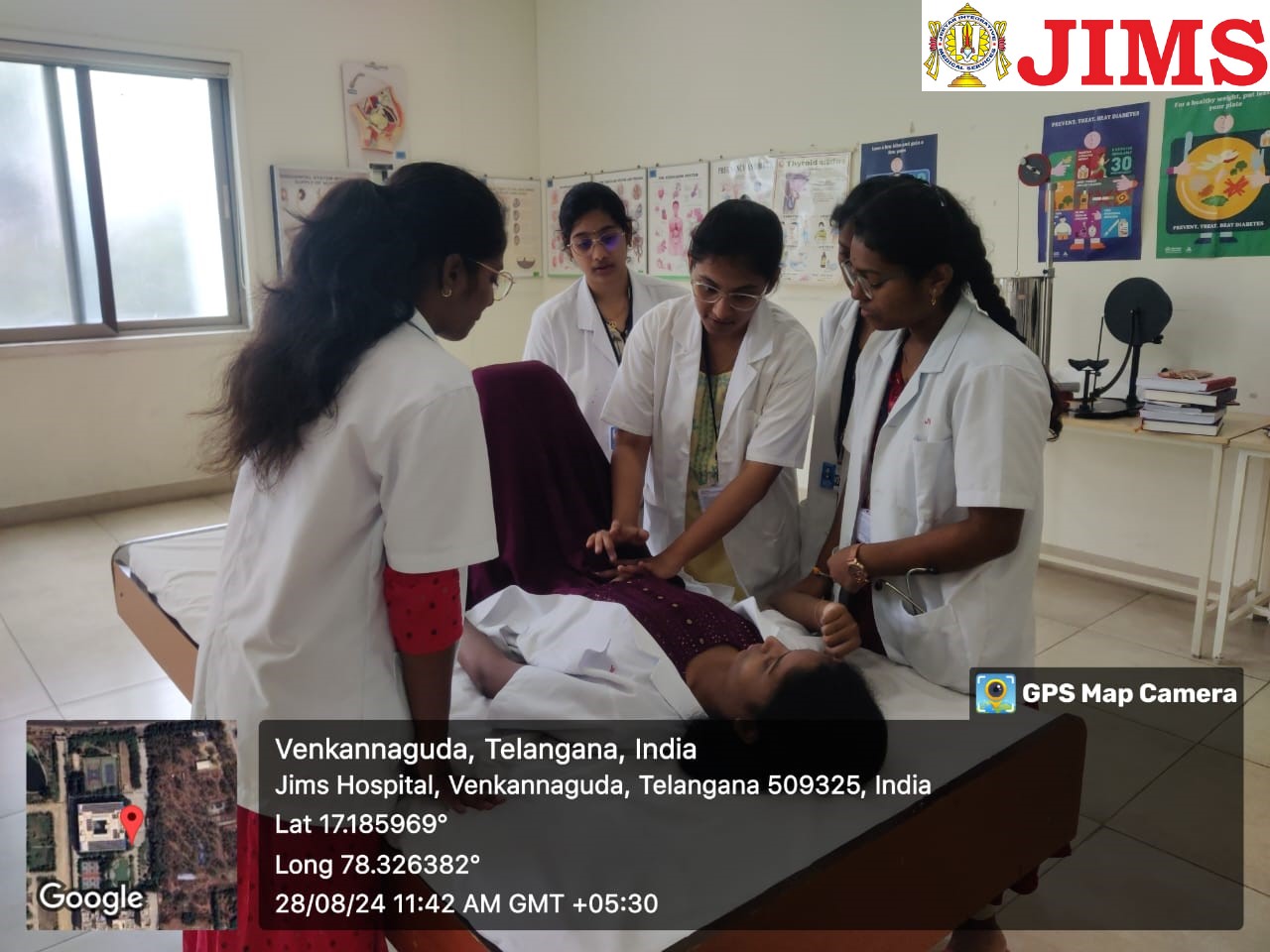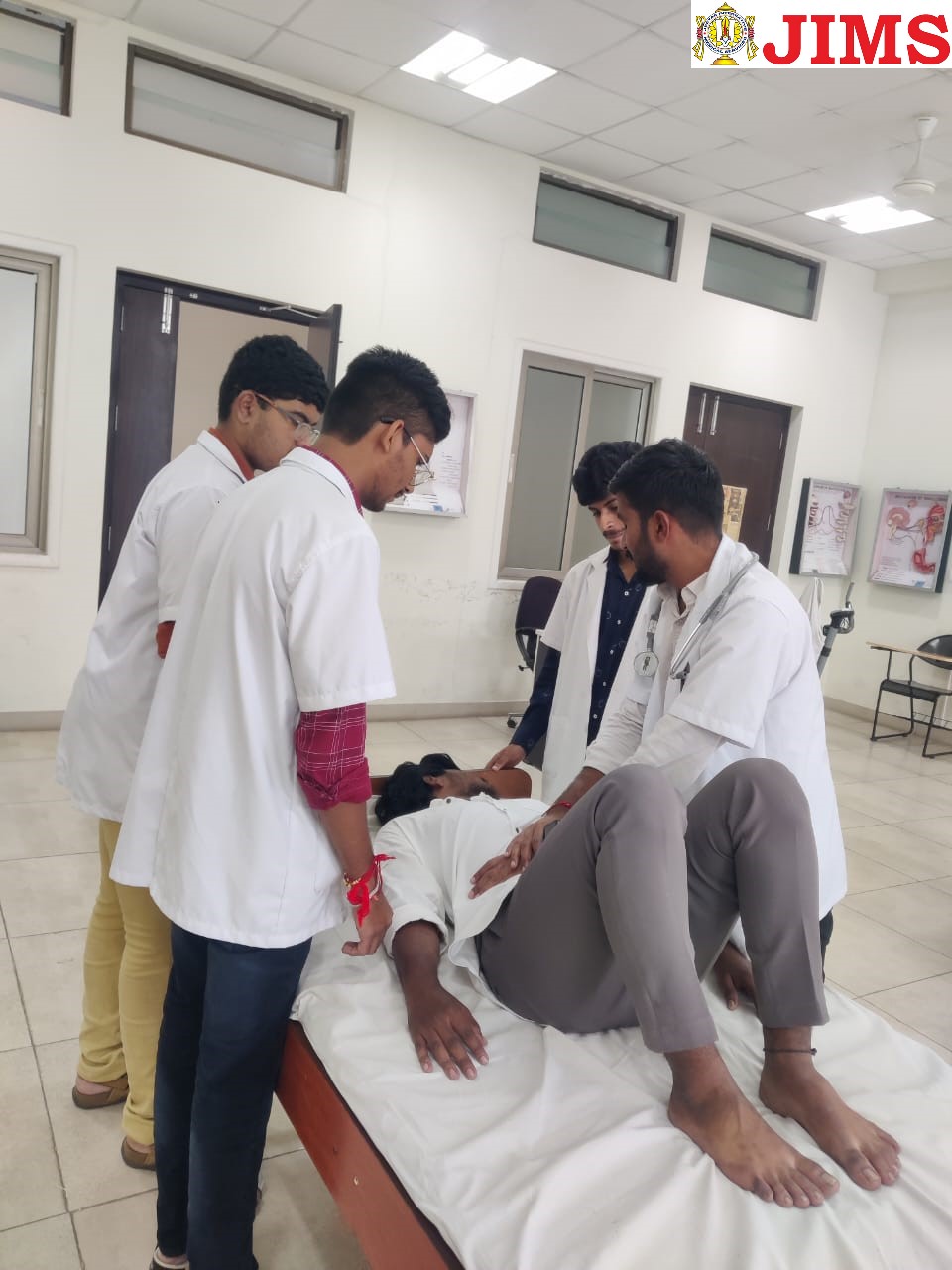Clinical Examination of the Digestive System: A Guide for 1st BHMS Students by Department of Physiology and Biochemistry, JIMS Homoeopathic Medical College and Hospital
🔍 Introduction: Understanding the digestive system is crucial for diagnosing and managing various gastrointestinal conditions. Here’s a comprehensive guide to help you navigate a clinical examination of the digestive system.
1. Patient History:
🗣 Key Questions to Ask:
Symptoms: Ask about abdominal pain, nausea, vomiting, changes in bowel habits, or difficulty swallowing.
Ingestion History: Inquire if there’s been any recent ingestion of foreign bodies or unusual objects.
2. Physical Examination:
A. Inspection: 👁 What to Look For:
General appearance: Check for signs of discomfort or distress.
Abdominal Inspection: Look for distention, visible masses, or asymmetry.
B. Palpation: 🤲 Techniques:
Light Palpation: Start with gentle palpation to detect tenderness, rigidity, or abnormal masses.
Deep Palpation: Assess deeper structures for any significant masses or abnormalities.
C. Percussion: 🎵 Sounds to Listen For:
Tympany: Indicates gas.
Dullness: Could suggest fluid or solid masses.
D. Auscultation: 👂 Bowel Sounds:
Listen for the presence, frequency, and quality of bowel sounds. Absent or abnormal sounds can indicate issues like obstruction or inflammation.
3. Diagnostic Tests:
A. Imaging Studies:
X-ray: Identifies radiopaque foreign bodies and provides a general view of abdominal contents.
Ultrasound: Useful for visualizing soft tissues and detecting radiolucent objects.
CT Scan: Offers detailed images, especially helpful for small or obscured foreign bodies.
B. Endoscopy:
Upper Endoscopy: For examining the esophagus, stomach, and duodenum.
Colonoscopy: For assessing the large intestine and rectum.
4. Management and Follow-up:
Foreign Body Removal: May involve endoscopy or surgery, depending on the location and type.
Monitoring: Watch for potential complications like perforation or infection.
Follow-Up Care: Provide guidance on recovery, diet, and warning signs of complications.
Tips for Success:
Practice Makes Perfect: Regularly practice the examination techniques to build proficiency.
Use Case Studies: Engage with real or simulated cases to apply your knowledge practically.
Ask Questions: Always clarify doubts and seek feedback to enhance your clinical skills.
📚 Keep Learning, Keep Exploring! 🌟

